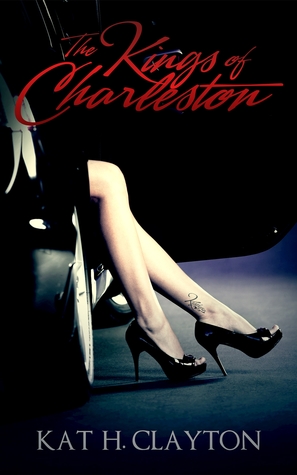The Reason Behind the Writing – Why I Do It
by August Wainwright
Writing is a profession. Being an author in today’s environment of publishing means being an entrepreneur. I get it; and anybody who wants to succeed should embrace that idea too.
I’m as guilty as everyone else when it comes to obsessing over the numbers. It is an absolute must that at least three articles per week will be consumed that discuss the business of selling books on Amazon; the more specifics on numbers sold and dollars brought in, the better. Give me screenshots and graphs and, while you’re at it, throw in a venn diagram (love those things). I want bone-deep specifics about what you’re doing over there on your side of the fence. It’s the game we play.
But this new environment demands something of us, something that us author-entrepreneurs might possibly be overlooking.
As the number of ereaders skyrockets and we pump out books for the growing consumer base, what is it that we’re actually delivering to readers? A highly planned-out marketing juggernaut or a creation of passion?
We, the proverbial we, have an opportunity here. Brilliant, philosophical people have been told NO by the publishing industry for so many years now, simply because their manuscript doesn’t fit into a sell-able box. Or better yet, maybe the publishers have wanted something different and earth shattering all along, but we’re just now moving into a time where the environment is ripe for such works. *I seriously doubt that’s the case, but who knows.
Self-published and indie authors have at their fingertips the conditions that allow for any and all opinions, no matter how unbelievable or ridiculous.
Take an essay that was recently published by Stephen King. It’s called simply
Guns and discusses the role of gun control and gun ownership in our country. As of this writing, it has over 1400 reviews. King published the essay as an Amazon Single and said his goal was:
to provoke constructive debate -
I would have to assume that even a world famous, can’t-miss-author like King wouldn’t have been able to publish an essay like this just a few years ago.
And regardless of your feelings on the issue of gun control, regardless of whether you’re a Prius-driving, Berkeley-educated, California liberal or a down south country boy who thinks the best way to stop school shootings is to give underpaid and overweight teachers a .40, it matters not my friends. The single most important part is that this essay exists and is being consumed by lots of readers.
I don’t presume that any novice self-published author can write an essay or short story about a socio-political topic, publish it on Amazon and garner thousands of readers. Maybe some can – I don’t really know. After all, Stephen King is still Stephen King. But it’s the opportunity that amazes me. Nobody can tell you no anymore.
Write something that matters, format it well,
create or purchase a great book cover, and do your best to spread the word. Start a conversation, or at least add to one that is already out there.
What do you have to lose?
My Story:
For the last two years, I’ve been building and writing a series that will eventually be released as a trilogy. For now, it’s still in the first draft phase. I don’t even have a title yet. I’m not happy with the overall message so I’ll keep my head down and write on. But these books are a labor of love, a pursuit of truth, a struggle to understand the problems of our society, and a passionate plea to every single reader to do more, to represent more, to stand for more.
The scope is too big – quite frankly, I’m not sure I’m up for the challenge. But I’m sure as shit going to try. Every knot has someone to undo it (an awesome Arab proverb). And in the current iteration of our society, there’s knots everywhere you look.
For me, the success of these books won’t be measured on the same scale as my other works. Commercial success and profitability aren’t inherently what I’m after. It’s about saying what I believe needs to be said. And although my efforts are far from in the same league (not sure if we’re even playing the same game) as books like Fahrenheit 451, Atlas Shrugged, A Brave New World, or 1984, I have the unfathomable opportunity to write whatever the hell I want.
I’ll let the readers decide. I have to believe the general public is much more intellectual than most of today’s authors give them credit for. I believe they want to be stimulated in ways that affect them. I believe they want more than just entertainment.
The Point:
Even in this golden era of publishing for authors, I still see daily articles about the things that are “tearing us down”. If it’s not that the market is being flooded with crap, it’s that Amazon and Createspace aren’t crediting all of your sales. Come on. I like a good conspiracy as much as the next guy but give me a break.
The growth of ereader devices is drastically outpacing the growth of books in the market. Not to mention the international markets that are exploding all over the world. And you know what, if you’re worried that your 8 sales of paperbacks should actually be 9, well, then maybe you should refocus a little. Just saying.
As environments heat up and die out and new ones sprout up, you’ll undoubtedly hear that you’re too late; that the door has already closed. Readers won’t be happy until books are a nickel and can be re-sold for a penny. Amazon is going to hold your work hostage. Piracy is robbing you of all your profits.
I beg you to ignore that bullshit. Focus on your product. Research. Write. Re-Write. Forget about “author platforms” or “creating your brand”. Write because you love it. Write because your readers interact with you and tell you they can’t wait for more and you feel like what you’re doing actually matters to them. Serve them, not the machine.
Things will change. Companies will go out of business, new ones will take their place, and the marketplace will evolve. Stay up-to-date, adapt, and change with it.
The Resistance is made up of two types of people. Those too chicken $#!& to follow their own dreams, or those so full of themselves they can’t bear to share the spotlight. Both types of people build themselves up by putting others down.
Again – ignore all of it. Learn to filter the lessons from the overwhelming sea of crap that will most definitely be thrown in your direction. Take the small steps and move towards your goal. If your goal is to make people laugh, then go entertain. If you want to affect change on the highest level, well, good luck to you – I’ll be the one next to you at the coffee shop, chasing down my own version of change.
Never forget why you write and who you write for. If you keep that at the forefront, the readers, and the income, will come.
Genre – Mystery / Thriller / Suspense
Rating – PG13
Follow the Tour






